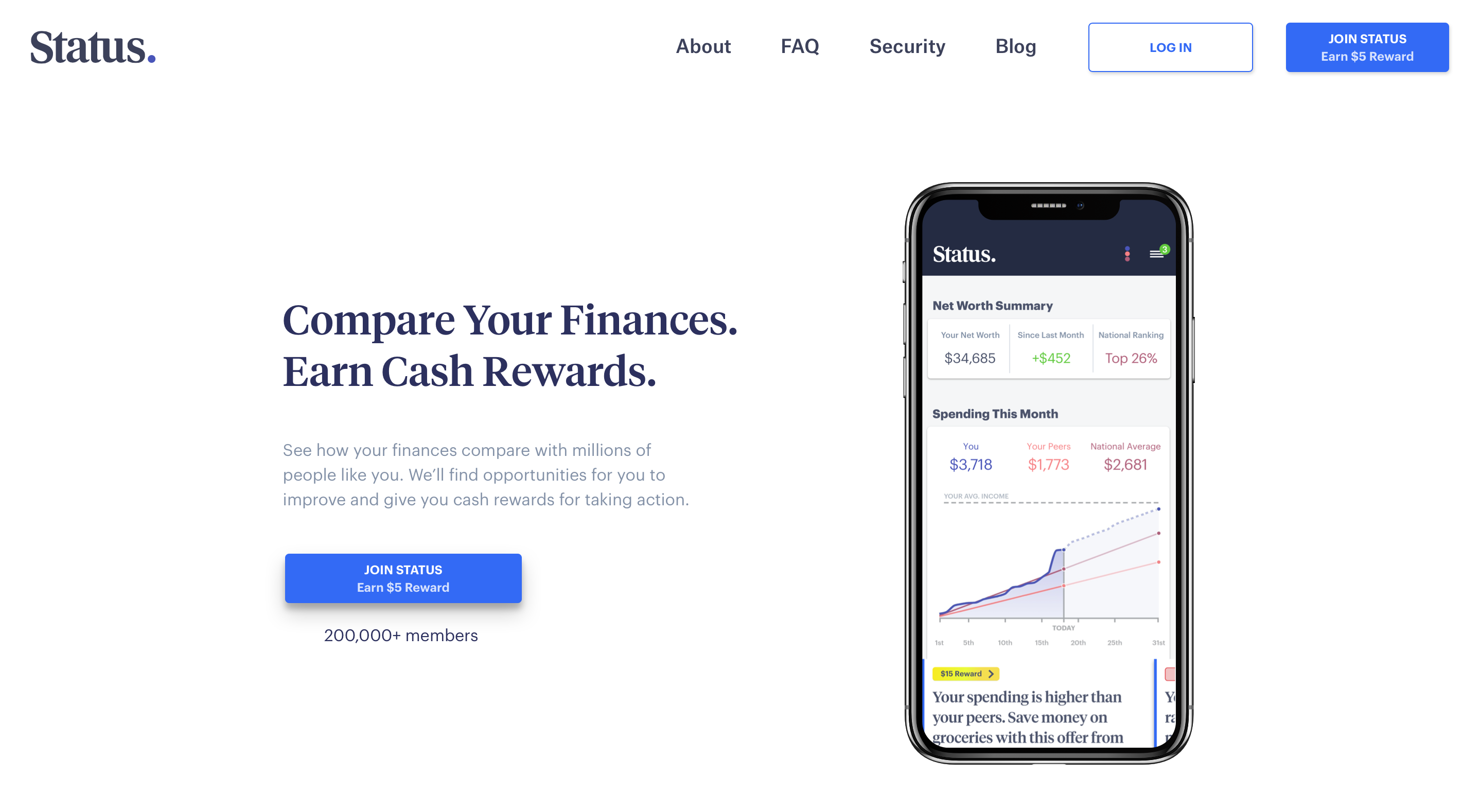
- Peer comparison PFM Status Money is shutting down and has transferred its users to Quicken Simplifi.
- Starting November 10, the Status Money website and app will no longer be available.
- Status Money’s closing comes a week after Mint announced it will close its doors at the end of the year.
While many in the fintech industry are still processing Mint’s departure from the fintech scene, there appears to be more shakeup in the PFM world this morning. Budgeting service and social personal finance app Status Money has notified its users that it is shutting down.
“As part of our ongoing commitment to providing you with the tools you need to get ahead financially, we will be transitioning our member accounts, including yours, over to Quicken Simplifi,” the company said in an announcement on its website.
Status Money was founded in 2016 to help users aggregate, track, and manage their entire financial lives and compare their financial standing with their peers. This peer comparison capability stood out as Status Money’s differentiating factor. The feature allowed users to compare their spending in specific categories to others by age, zip code, and income level.
The New York-based company’s other tools allowed users to set goals and participate in discussions with other users. In 2020, the company launched a $20 per month premium tier that allowed users to chat with a financial advisor on a monthly basis.
Starting November 10, however, the Status Money website and app will no longer be available, but users will be able to use their existing credentials to log into Quicken’s Simplifi budgeting tool, which costs around $3 per month. Status Money has transferred each user’s personal information and data associated with their account to Quicken. The Status Money Rewards program, which paid users in cash and Bitcoin for referrals and for engaging in product recommendations, is no longer available.
Status Money, which demoed at FinovateSpring 2019, hasn’t released much more information regarding the transition. There is currently no word on whether Quicken acquired the entire company or just its users, nor has Status Money disclosed transaction details.
One thing is clear, however. This appears to be yet another nail in the coffin of PFM. In his recent piece in Forbes titled The Demise of Intuit Mint and Personal Financial Management, Cornerstone Advisor’s Ron Shevlin goes into detail of why PFM is a dying fintech subsector. He notes that consumers are looking for more than just tracking, but are instead drawn toward tools such as those that help them optimize the return on their savings, save money, and mitigate monthly bills.
As someone who still uses an offline Excel spreadsheet to budget each month, I would argue that there may still be a market for simple PFM tools. However, the consumer-facing fintech market is crowded. In order to survive, standalone PFM companies may fare better with a B2B approach by embedding their tracking tools within larger fintechs or financial services organizations. This meets the consumer where they are already are instead of imposing an additional app to keep track of.






 Presenters
Presenters Korash Hernandez, COO and Co-founder
Korash Hernandez, COO and Co-founder


 Presenters
Presenters Korash Hernandez, Co-Founder and COO
Korash Hernandez, Co-Founder and COO